25 Crazy Predictions About the Next 25 Years
What futurists and other experts see in their crystal balls.
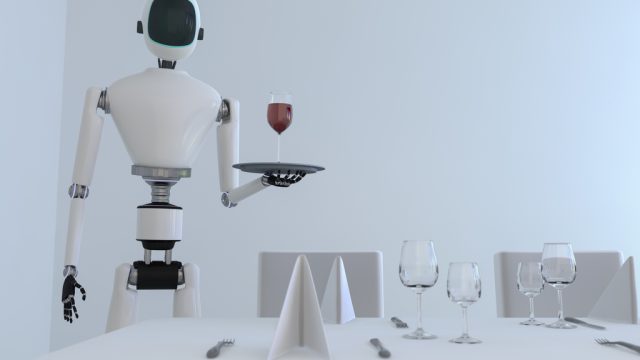
A lot can happen in 25 years. A quarter-century ago, "mobile phones" meant cordless landlines and Nirvana topped the charts. Anyone anticipating in 1993 what life might be like 2018 would likely miss the mark in some ways, but those watching trends closely could be surprisingly close to how things actually shook out.
To help predict what the future might bring, we reached out to futurists, tech experts, and others whose job it is to keep an eye on where things are heading and how things might look over the long term. Some of their predictions might surprise you. Take a few more steps into the future with the 30 Craziest Predictions About the Future Experts Say Are Going to Happen.
1
Homes Will Be Hacked

As the Internet of Things (IoT) lead to a wider range of our appliances, electronics, and other aspects of our lives being connected to the online world, it will also open us up to security breaches. Just as we have to watch out for viruses and hacks to our computers, soon we will have to do the same for our homes.
"While consumers may not be physically locked out of their house, since manual locks have yet to be replaced and can be a backup, they will experience a 'home invasion' of a digital sort," says Jason Hart, vice president and CTO of data protection of security firm Gemalto. "Specific appliances will be held for ransom, internet-connected devices will provide a path to personal data for blackmail purposes. Even assets stored in the cloud won't be safe: with homeowner data, coupled with lax security controls, hackers have an open door for stealing everything from music and videos to Bitcoins." Think this is crazy? Check out This Is What Life Could Look Like 100 Years From Now.
2
Driverless Will Be the Norm
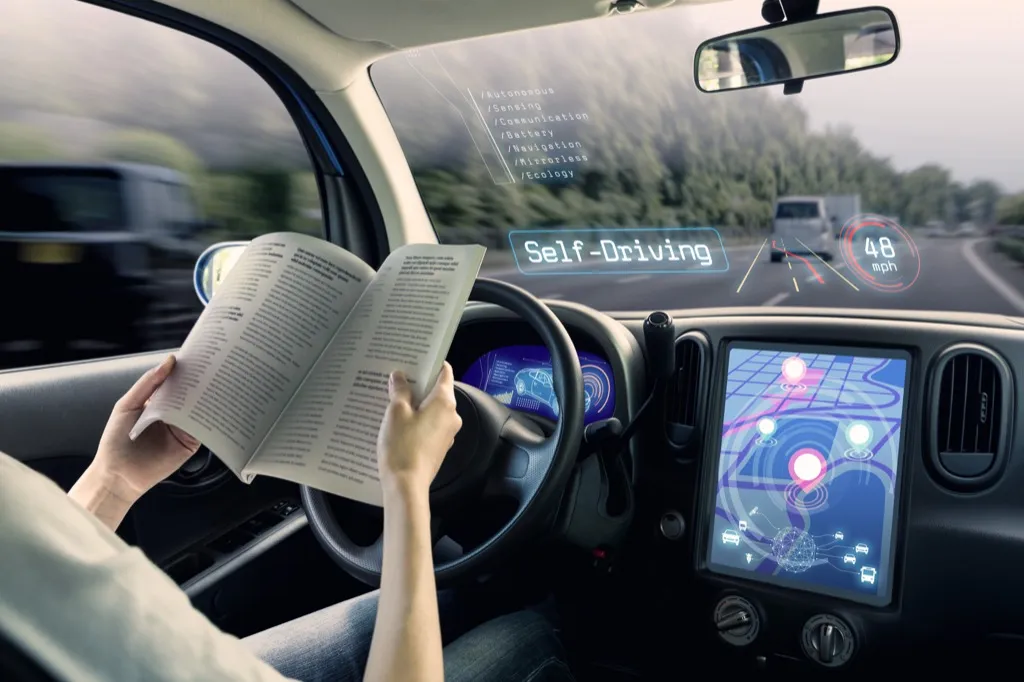
Despite the growing pains that self-driving cars have gone through in these early stages, the technology does not look likely to go anywhere and will likely become the norm in the next few years, according to Chris Nielsen, founder and EVP experience design for technology company Levatas, as well as a futurist.
"Most all major auto manufacturers such as Ford, Nissan Renault, Daimler and more have committed to shipping driverless car options within the next 2-4 years, most of them by 2020," he points out. "This means that in 25 years, the driverless car experience will have matured into a safe, ubiquitous and ultimately convenient option."
For those reasons, he expects that driverless cars will saturate the marketplace within a quarter century, and will have built a track record of safety and effective operation that laws may even be passed to remove (relatively unsafe) human-driven cars from public roads.
"We're still quite a ways off from this here in 2018, but a lot tends to happen in 25 years," he says. While you're still stuck driving your own car (sigh), be sure to Rule the Road with These Smart Driving Strategies.
3
In Fact, It Will Be a Stigma to Drive Your Own Vehicle

Nikolas Badminton, a futurist, author, and researcher who speaks on topics relating to the impact of exponential technology expects that not only will self-driving vehicles become commonplace, but "it will almost be a stigma to own and drive your own vehicle."
He adds that it will also have some positive effects, such as reducing the stress of commutes, a growth in carpooling, and even "shared vehicles used as meeting rooms by companies."
4
Rides Will Be Sponsored by Corporations
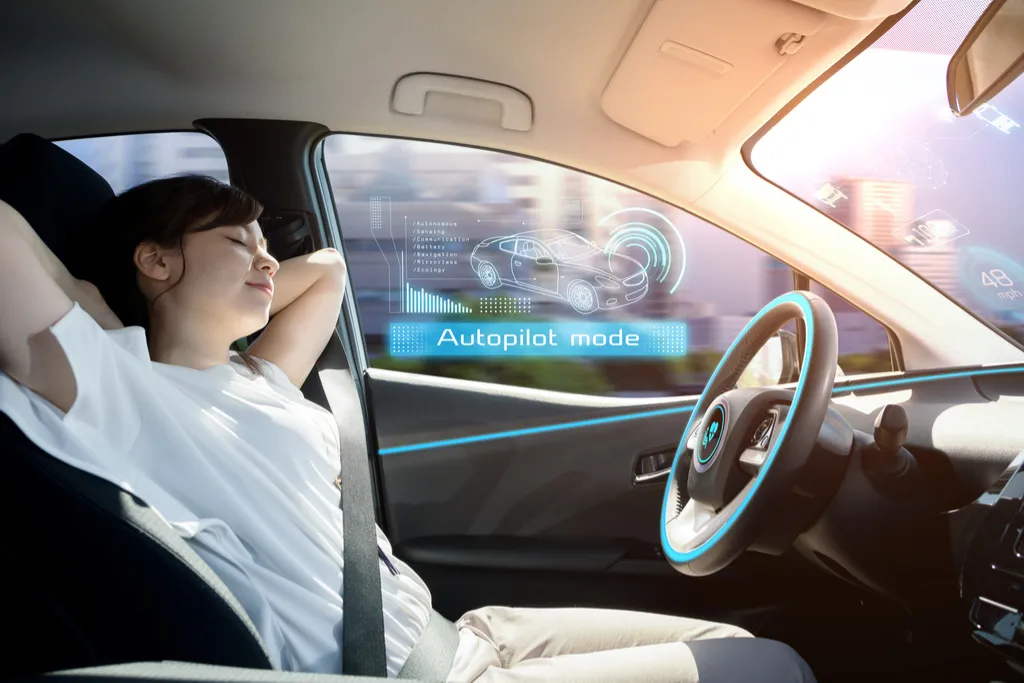
Another side benefit that may grow from self-driving vehicles is that they will be less expensive, even free—but you will likely have to listen to a corporate message to enjoy them.
"Your AV [autonomous vehicle] may give you that ride for next to nothing if Google's Waymo sells your ride to an advertiser," predicts Benjamin Y. Clark, PhD, an assistant professor of planning, public policy and management at the University of Oregon. "Your morning commute may be sponsored by Dunkin Donuts—'would you like to stop and get a coffee on your way?'—and your ride home sponsored by Taco Bell." For an even bigger jump into the future, This Is What Life Could Look Like 200 Years From Now.
5
Money Gets Smarter

"By combining the power of AI and blockchain, the concept of money could evolve into electronic tokens with far more types of assets tradeable within the one 'currency,'" predicts Rohit Talwar, CEO of futurist research company Fast Future.
He gives the example that we might earn tokens from our employers that can be redeemed at retailers and airlines, and as micro-credits for completing workplace training or school learning tasks.
"Instead of simply liking a track from a musician, we could now make a micro-payment to them with a fraction of a token," says Talwar. "This evolution from cash and cryptocurrencies towards a universal means of exchange could mean the end of cash and foreign exchange markets." To survive with your cash flow now, follow these 52 Easy Ways to Be Smarter with Money in 2018.
6
Currencies Will Go Corporate

While cryptocurrencies like bitcoin have taken off in the last couple years, Badminton expects to see additional, brand-oriented currencies on the rise, particularly from major tech companies.
"Some people will only use those currencies in their daily lives—think Facebook Dollars, Google Dollars, Wal-Mart Dollars, Disney Cash," says Badminton. And for more on forward-thinking technology, don't miss these 20 Facts You Never Knew About Your Smartphone.
7
Say Goodbye to Privacy

A quarter-century ago, the most paranoid ideas about surveillance and privacy invasion probably would not have predicted how eagerly we would be to hand over personal data to faceless corporations and data-miners. But Reg Harnish, a fellow at the National Cybersecurity Institute and CEO of GreyCastle Security, predicts we have much further to fall when it comes to handing over the keys to our data.
"We are already seeing the erosion of privacy today, with Facebook and other organizations selling all our most private data to the highest bidder," he says. "But, in the next quarter-century, perhaps even sooner, I believe privacy as we know it will be gone. We will talk about privacy like we talk about rotary phones today—we don't. Is that a good thing? I don't know. But, short of opting out of the internet, we will all have to face the reality that nothing will be secret anymore."
8
Security Gets More Central

But this loss of privacy won't be taken lying down. With technology becoming a bigger part of our lives, security concerns will grow too.
"What changed in 2017, and will escalate in the coming year, is a heightened awareness of security and data privacy issues amongst general consumers and business leaders, too," says Sandor Palfy, CTO of identity and access management at LogMeIn, makers of password manager LastPass. "There is no doubt for consumers and businesses that data breaches and security issues are no longer an anomaly, but will continue to be the new normal."
For that reason, Palfy expects that businesses will be required to invest an even greater amount in tools and training that strengthen their organizations' and employees' security.
9
3D Printing Will Be Huge
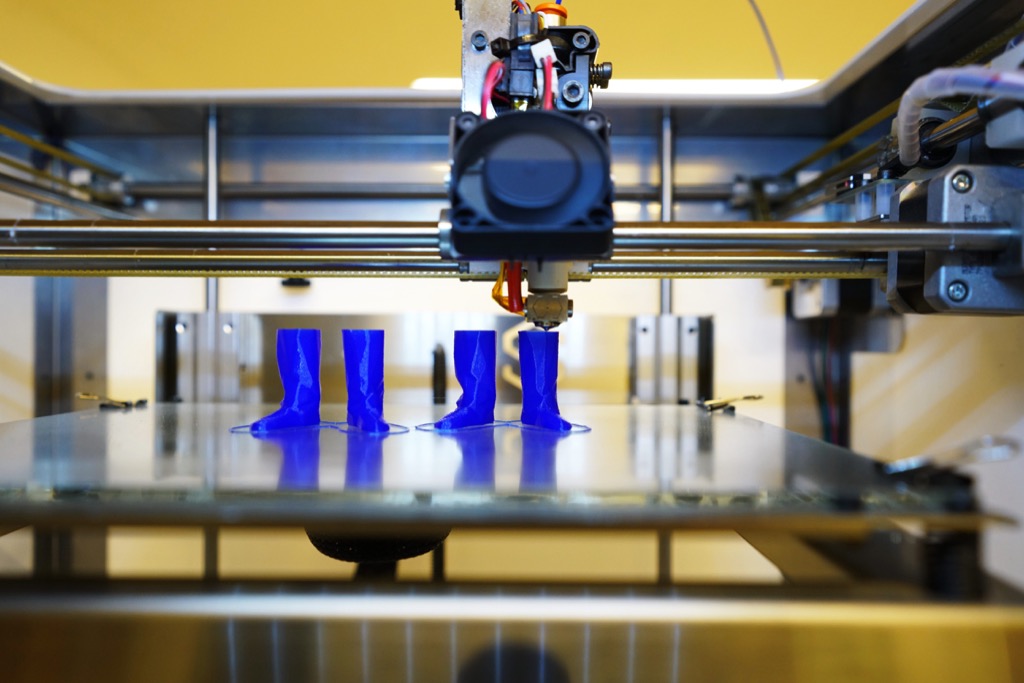
Expect to see further development in 3D printing, particularly as the technology gets more affordable and manageable.
"There are few modern technologies more exciting than 3D printing," says Nichole Elizabeth DeMeré, a customer service and SaaS expert and author of Playbook to Grow Your SaaS. "You can turn filament into a functional beer stein, goo into a remote control car, or build a to-scale model of your living room to figure out where to put your couch. Or, you can build a 3D printable prosthetic hand that can grip for less than ten dollars, like the e-NABLE Project does for kids in need." And for more amazing knowledge, here are 30 Facts You Always Believed That Aren't True.
10
Artificial Everywhere
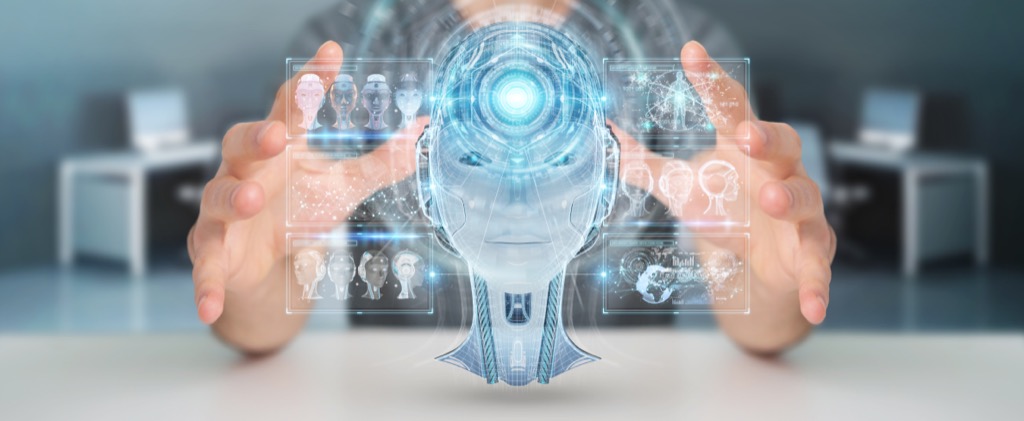
Artificial intelligence will only become more prevalent, impacting virtually every area of our lives—healthcare, education, entertainment, financial services, and more—according to Talwar.
"Smart systems could manage our social lives, help us select the ideal partners for dating, marriage, and reproduction, monitor our health in liaison with our doctors, and personalize our education so content is delivered in the way we learn best," he says. "The technology will be making legal decisions in court, determining our benefit payments, fact-checking politicians, and powering the transport sector."
11
Chatbots Will Rise

DeMeré also expects to see a further growth in chatbots in the realm of customer service and marketing.
"Chatbots are poised to become the next big thing," she says. "If you like being in the lead of cresting trends in marketing, you're going to need one. The greatest adoption of bots is with consumers between the ages of 18 and 35. But that doesn't mean older consumers aren't willing to engage with bots—not by a long shot."
12
We'll Have Digital Doubles

Andy Wood, chairman of computer vision and facial animation company Cubic Motion, expects that everyone will have their own online avatar.
"Within the next 25 years, everybody can have an online persona 'digital double'—it doesn't need to be creature, age or gender specific—just like the Ready Player One movie," he says. "Every walk of life, profession, and social lifestyle will have access to an online digital double."
13
Interacting With Digital People Becomes the Norm

Just as we've gotten more used to chatbots and speaking to Alexa and Siri, soon we will get comfortable interacting with fully digital characters.
"By 2024, we may all be interacting with digital humans in some way or other, whether its via headsets, films, TV, games, live performances and broadcasts, or by directing digital assistants in our homes in real-time," says Wood.
14
Movie Theaters Will Vanish

As VR evolves further as a form of entertainment, the pursuit of an immersive experience that draws so many to theaters may instead lead them to pick up VR headsets.
"Movie theaters will disappear quicker than Blockbuster," expects Andrew Selepak, a professor of telecommunications at the University of Florida.
Though VR is still in its infancy in many ways, he expects that in 25 years, we will all be enjoying movies and television in a virtual environment.
"We will all have virtual reality devices to enjoy the latest release taking away any need to go to an actual theater and sit in a chair to watch the film in a flat 3D environment," he adds. "Just like how streaming services did away with the video rental business, Virtual Reality and streaming video will do the same to theaters."
15
Going Off to College Becomes a Thing of the Past

With more virtual experiences available online, particularly in the realm of education where online classrooms will evolve, young people will be more likely to stay close to home rather than go away to college.
"The need for students to physically attend a university will become unnecessary," says Selepak. "Universities will instead resemble TV studios where professors will lecture on material in front of a green screen for students to watch at home. This will lead to more young people living with their parents after the age of 18, but for universities, just like with the advent of MTV, video will replace the professor star with those who are the most personable and telegenic."
16
Tech Pushback

With AR and VR becoming commonplace and our world approaching a Ready Player One kind of world, expect to see plenty of people push back against these invented realities.
"There will be a young, 'anti-immersion' movement that totally shuns these technological developments, in favor of 1990/2000's connectivity," predicts Zach Suchinm digital technology and marketing expert and CEO of Brand Knew.
This won't necessarily mean revolution, but a turn toward tech that's grounded in lived experience, such as live streaming.
"They spark conversation and action as you watch along with others," says Suchinm. "They are timely, so they require a viewers dedicated attention in the moment or they'll miss it. Conferences, events, red carpets, sports, cultural events are all ripe for live streaming. Amplified with a call to action, they tend to drive click-throughs 10x than VOD."
17
Anti-Trust Backlash

Just as the rapid expansion of technology is going to lead many to push back, so too will the growth of media and tech companies inspire government intervention and scrutiny.
"The Justice Department will levy anti-trust scrutiny to drive counter-intuitive hyper-regulation against media mergers and acquisitions," says Suchinm. But, as we've seen with the changes happening with social media and more, the law is often a step behind what is happening in the industry, and Suchinm expects that "the government will not be able to properly keep up to regulate the pace of technology, AI development, anti-trust violations, FTC oversight of advertisements, etc."
18
The Weather Will Get Crazier

Extreme weather is likely to become the norm, with hurricanes, tsunamis, wildfires, and all variety of other major events hitting with more frequency. Wes O'Donnell, a professor of predictive analytics at Baker College, warns that in the next 25 years we are going to see a "statistical increase in dramatic weather events due to human-induced climate change." So pick up some sandbags and make sure you've paid your flood insurance.
19
Technology Dependence Will Rise
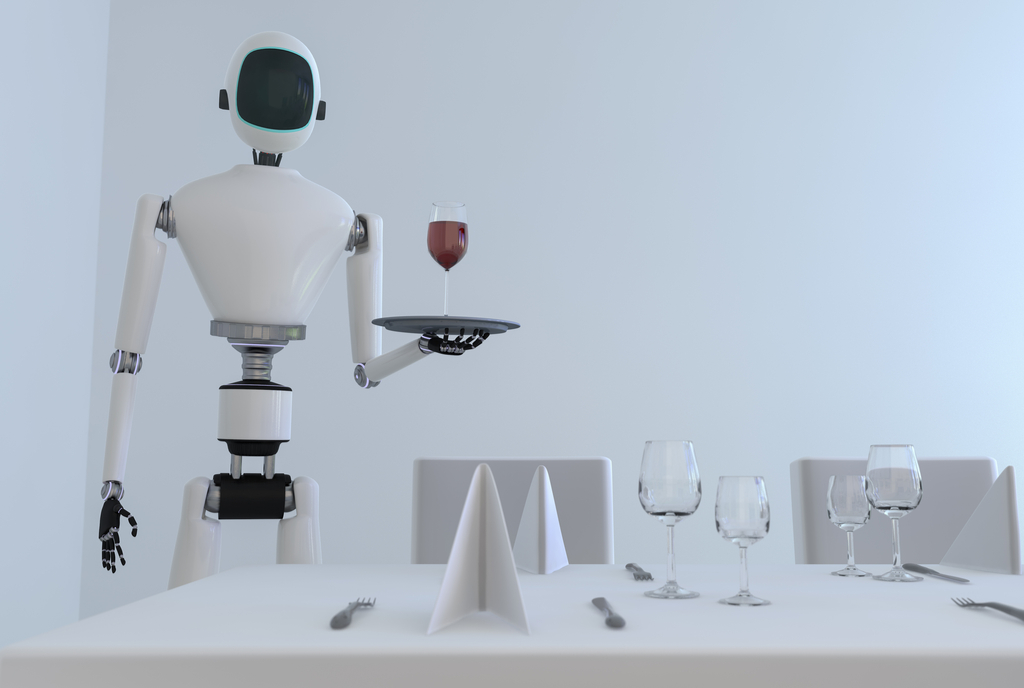
Beyond being addicted to checking our phones, more and more of our daily lives will be handled by automation and AI, with chores and activities we never previously thought of as burdens getting outsourced to tech tools.
"The Internet of Things means that soon are not only will our phones be smart, but so will our cars, our fridges, and everything else in our house," says Selepak. "Our fridge will let Amazon know we are out of milk and it will be delivered by a drone and be waiting for us and our morning coffee before we get up in the morning and before our smart car takes us to work."
20
The Job Landscape Will Transform
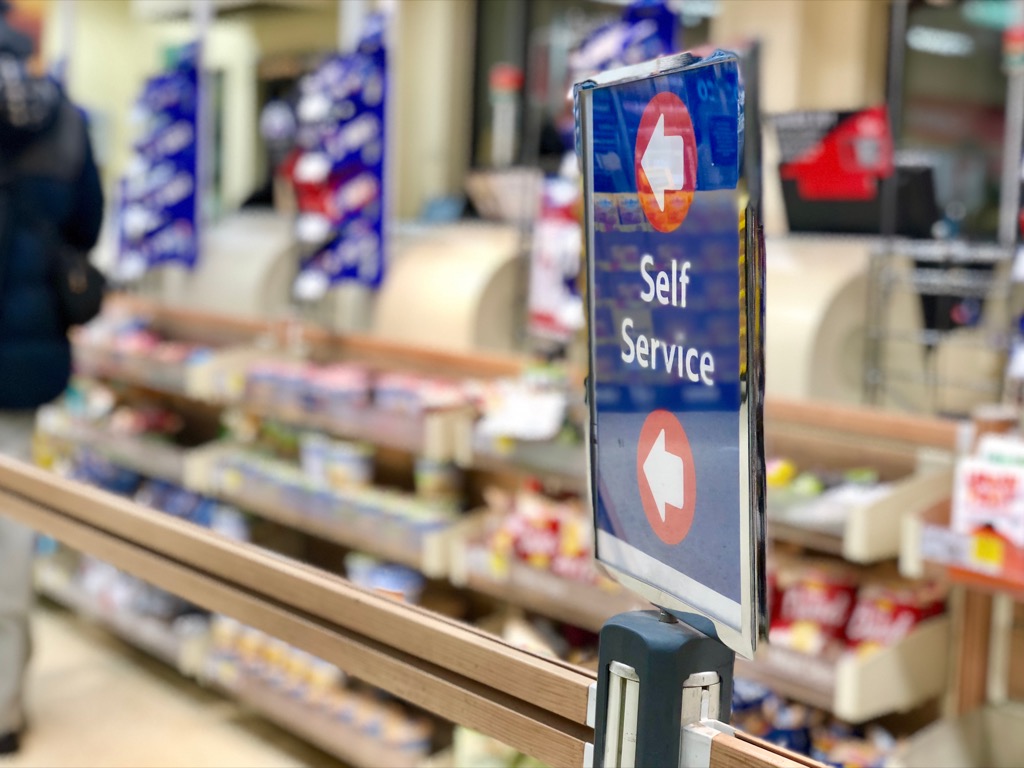
As AI and IoT become the norm and retail continues to collapse, the employment landscape will be reshaped in major ways—not all of them good.
"Unemployment will skyrocket," says Selepak. "Machines are already replacing cashiers at grocery stores, Walmart, and Lowes, and smart cars will replace Uber drivers. Many blue collar jobs will be replaced with machines that cost less, never skip work, and never get sick. This will leave millions out of work and create a tremendous tax burden on the government."
21
Grief Goes Digital

Anyone who has lost a loved one in recent years can appreciate that memorializing someone has changed in the social media era, with Facebook pages becoming memorials and places to share memories of the person, and their posts and shares serving as a scrapbook of their lives. Journalist Danielle Radin, who provides social-media management services free of charge for those that are deceased as part of Kind Years Grief Association, expects to see the demand for this grow.
"As social media continues over the next 25 years, there will be more of a need for digital memorialism," she says. "It will become a field just like any other. When we pass away, our digital footprint lives on forever. There will need to be people to manage this."
22
Rise of Smart Cities
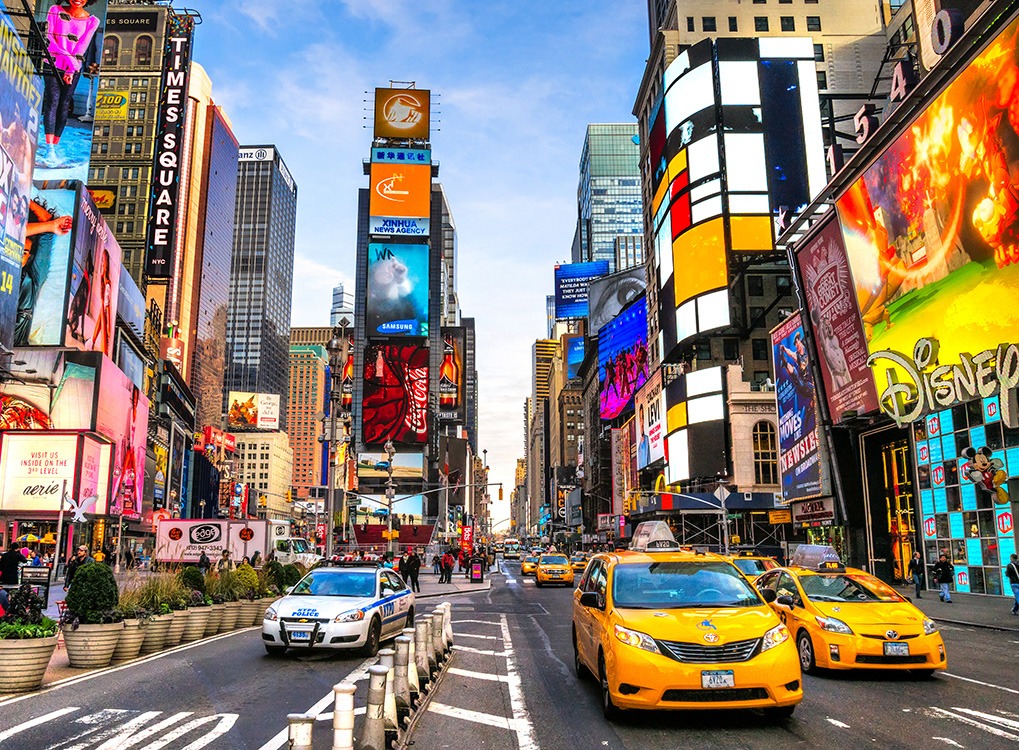
"An era marked by exponential change has seen changing ideas of asset ownership, radical leaps forward in AI, increasingly efficient electric propulsion units for vehicles, and the emergence of smart city infrastructures," predicts Steve Wells, COO of Fast Future. "These relatively smooth transitions led to other changes in cities, including the removal of redundant traffic signals and the remodeling of some street intersections."
23
Artificial Meat Goes Mainstream

While the concept of artificial meat might seem unsettling today, it will likely become more widely accepted in the next 25 years as its benefits become more apparent.
"In-vitro cloned meat could be another future solution to our food supply problems," says Fast Future researcher Helena Calle. "While lab-grown meat may still face many challenges, such as flavor control, it also has many advantages such as less waste, less risk of viruses, reduced space requirements, and lower emissions and environmental impacts among others. These benefits seem to outweigh the disadvantages and drawback of traditionally reared livestock."
24
Transformed Food Chain

Speaking of lab-grown meat, Calle predicts that such innovations, along with AI and vertical farming, will lead to a transformation of the food chain as we know it.
"Hydroponics plants, fruits, and vegetable might change agriculture as we know it, and help revolutionize the food industry," she says. "Overpopulation is having major consequences, driving a lack of growing space and food in many parts of the world. The growing global population will force us to find creative solutions. Having AI-controlled hydroponic vertical farms on the sides of buildings might be one of the solutions."
25
Antibiotics Will Fail

As pathogens become ever-more immune to the current antibiotics available on the market, the pharmaceutical industry will have to get more creative and innovative in their solutions.
"In the next 25 years, is it possible that we will experience 'the end of antibiotics' (as the World Health Organization put it in 2016)?" asks Fast Future's foresight director, Alexandra Whittington. "Fortunately, the microbial threat is being met with advanced drug development, allowing medical researchers to explore new approaches to fight superbugs. New strategies on the horizon range from genetic modification of germs and implantable semiconductors through to the discovery of new antibacterial agents in soil."
To avoid sickness and live a long life, follow these 100 Ways to Live to 100.
To discover more amazing secrets about living your best life, click here to sign up for our FREE daily newsletter!





















